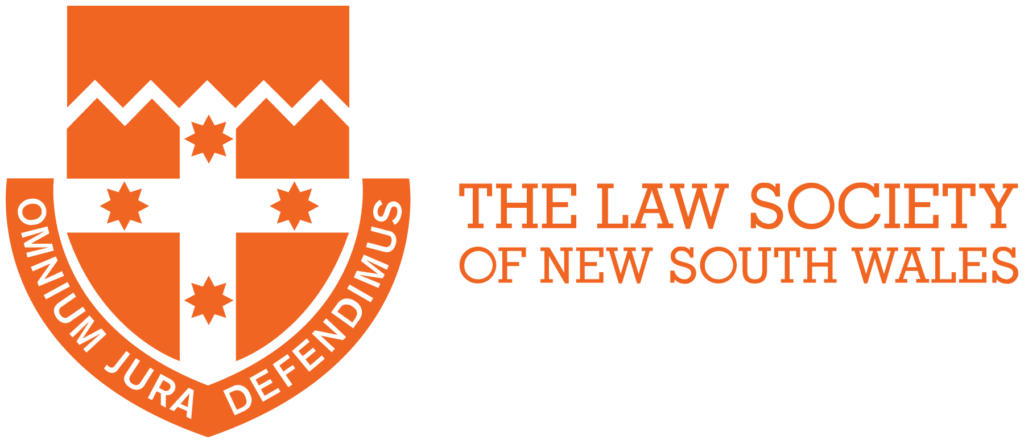Startup Attorney
We draft shareholder agreements, secure IP assignment deeds, and structure capital raise documentation before co-founder disputes, investor due diligence, or ASIC compliance gaps derail your funding round.


Secure Your Legal Advantage
500+
Your brand deserves to be yours, no question. Join 500+ others who’ve secured trade marks built to grow, scale, and stand out globally.
$10M +
With over $10 million recovered, our clients move forward with renewed clarity, free from delays, distractions, and the weight of unresolved matters.
2,000 +
We’ve helped over 2,000 companies scale, advising on the deals, hires, and legal frameworks behind expansion, funding, and ownership.
40 Years
With 40 years of experience, we’ve all seen the challenges you’re facing. We’ll help you avoid the mistakes others have made.














The Founder Mistakes That Kill Startups Before Series A
Most founders don’t lose their companies in boardroom battles or market downturns. They lose them in handshake equity deals that were never documented, contractor IP that was never assigned, or share structures that let early investors dilute you out of control.
By the time you’re raising capital, these gaps surface. Investors walk. Co-founders argue over percentages. Contractors claim ownership. A startup attorney fixes these problems before they surface, not after they’ve already cost you the round.
What Standard Solicitors Miss
Standard commercial lawyers draft contracts. Startup attorneys draft documents that survive funding rounds, equity disputes, and founder exits. The difference shows up when your company hits inflection points where bad legal work costs you millions or months of runway.
The Startup Attorney Team Behind 160+ NSW Capital Raises
Mark Lazarus served as Legal Director for Monster Energy across Europe, the Middle East, and Africa before founding Lazarus Legal. He’s advised over 2,000 Australian founders through pre-seed to Series A, structuring equity, protecting IP, and preparing companies for institutional investment.
Our startup attorney team has reviewed legal structures for 160+ NSW tech startups and e-commerce companies. We’ve caught vesting gaps before co-founder departures, flagged dilution traps in SAFE notes, and rewritten shareholder agreements that would have failed investor due diligence.
We don’t work with templates. Every shareholder agreement, IP deed, and investment document is drafted specifically for your company structure, founder relationships, and capital strategy. You get senior lawyer attention, not junior associate work billed at partner rates.
2,000+ startups advised
From idea-stage co-founder setups to post-seed capital raises, across SaaS, marketplaces, Web3, and service platforms.
$180M+ in capital raised
10,000+ startup documents delivered
Every agreement is drafted in-house. Shareholder agreements, SAFE notes, ESOPs, IP deeds, and service terms are all tailored to the actual deal.
What Founders Say
I highly recommend Mark and the team at Lazarus Legal. They assisted me with reviewing and negotiating a commercial lease. The entire process straightforward and stress-free. Thank you!
Approached Mark when we were starting our company. He was personable, provided great advice, hit our timelines and was really fair with his pricing. Highly recommend Lazarus Legal
What A Startup Attorney Handles For NSW Founders
From first co-founder conversation to institutional funding round, a startup attorney protects what you’re building at every stage. We handle the legal work that keeps equity clean, IP secure, and investors confident when they run due diligence.
Shareholder Agreements
We draft founder agreements with vesting schedules, leaver clauses, and decision-making frameworks that prevent equity disputes when co-founders exit or contribute unequally.
IP Assignment Deeds
We ensure your company legally owns everything contractors, freelancers, and founding team members create, preventing ownership claims that kill funding rounds.
Investment Documentation
We review and negotiate SAFE notes, convertible notes, and preference share terms to protect founders from hidden dilution traps and unfavourable investor controls.
Company Structure and ASIC Registration
We set up compliant company structures with share classes that support employee options, overseas investors, and future funding rounds without costly restructures.
Employee Equity and ESOP
We structure employee share option plans with vesting terms, exercise conditions, and tax treatment that attract talent without creating cap table chaos.
Due Diligence Preparation
We audit your legal structure before funding rounds to flag and fix gaps that delay or kill deals, ensuring investors receive clean documentation that closes fast.
Legal Services Beyond the Startup Structure
James Chen, SaaS Founder
Mark’s shareholder agreement caught a vesting gap that would’ve cost me 15% equity when my co-founder left six months later.
Priya Sharma, Healthtech Startup
Their IP assignment process was fast and covered scenarios our DIY template completely missed, saved us during Series A due diligence.
Tom Richardson, Fintech Founder
Clear fixed fees and investor ready documents without the $20K bill from big corporate firms.
- Raising soon?
Get Your Structure Investor-Ready
Book a consult with our startup attorney team and get a clear breakdown of what’s missing, what’s risky, and what needs fixing before due diligence begins. We review your shareholder agreements, IP ownership, and company structure, then tell you exactly what investors will flag. Contact Lazarus Legal today to close faster.
What Founders Should Know Before Hiring a Startup Attorney in Sydney
What does a startup attorney actually do differently than a commercial lawyer?
A startup attorney understands founder timelines, equity mechanics, and venture capital deal structures that commercial lawyers rarely encounter. We draft shareholder agreements with vesting schedules, review SAFE notes for dilution traps, prepare IP assignment deeds for contractors, and structure cap tables that survive multiple funding rounds. Commercial lawyers handle business contracts generally; startup attorneys focus specifically on the legal needs of early-stage companies raising capital and scaling teams. According to ASIC, proper company structuring from incorporation prevents disputes that affect 34% of new ventures within three years.
Do I need a startup attorney if I'm bootstrapping and not raising capital?
Yes, but for different reasons. Bootstrapped companies still need founder agreements with equity vesting, IP assignment for contractors who build product, employment contracts that comply with Fair Work regulations, and terms of service that protect against customer disputes. The legal structure you set up today affects your ability to raise capital later, sell the company, or resolve co-founder disputes. A startup attorney ensures your foundation is clean whether you bootstrap or raise, and that you’re not locked out of funding options because your early legal work was incomplete. The Corporations Act 2001 requires specific documentation for share issuance and company governance regardless of funding status.
How much do startup attorneys charge for early-stage companies in NSW?
Lazarus Legal offers fixed-fee packages that preserve early-stage capital. Founder shareholder agreements with vesting typically cost $3,000 to $5,000. IP assignment deeds for contractors range from $1,500 to $2,500 depending on complexity. SAFE note reviews cost $2,000 to $3,500. Full seed round documentation including shareholder agreements, investment deeds, and board resolutions range from $8,000 to $15,000. We provide detailed quotes before engagement so founders can budget legal costs as part of their runway calculations, not surprise expenses that drain capital needed for product development.
Can a startup attorney help if our co-founder equity split is already causing problems?
Yes, but earlier intervention prevents more options. If equity was never formally documented, a startup attorney can draft shareholder agreements with vesting that start from today and include buyback provisions for departed founders. If agreements exist but lack leaver clauses, we can amend them if all parties consent, or advise on restructuring options. If a co-founder has already left and claims full ownership with no vesting, resolution becomes more expensive and may require negotiated settlements or, in worst cases, mediation through commercial dispute resolution. The sooner you engage legal support, the more tools we have to protect remaining founders and the company’s ability to raise capital or sell.
Should I use a startup attorney or do it myself with online templates?
Templates don’t account for your specific founder relationships, equity contributions, IP creation timeline, or capital raise strategy. They lack critical clauses investors expect during due diligence, like drag-along provisions, pre-emptive rights, and properly structured vesting schedules. Most template failures surface during funding rounds when investors require clean documentation and founders discover their DIY agreements create deal-killing gaps. A startup attorney costs more upfront but prevents the $50,000+ in legal fees required to unwind bad structures during Series A. According to the Law Council of Australia, founders who engage legal support at incorporation face significantly fewer disputes and funding delays than those who use generic templates without professional review.
